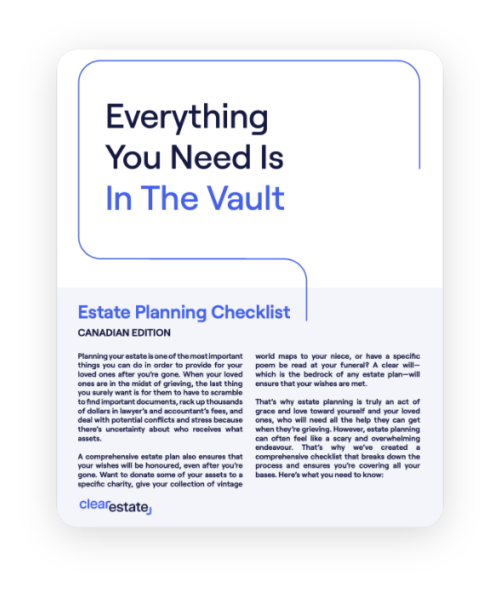Estate Planning
Nov 29, 2024
7 Critical Trust Fund Mistakes Parents Must Avoid in 2025
Setting up a trust fund? Learn the biggest mistake parents make and ensure your child's financial security with expert guidance.
Pets are a part of the family, and they should be taken into account when planning your estate. Here's why you should include them in your will.


As pet owners we deeply love our furry friends and consider them part of our family, yet when it comes to making plans for what happens to our companions if something were to happen to us, many of us fall short.
Despite over 90 million American families owning a pet, only 7% of owners take the necessary steps to provide long-term care and security for their pets in the case of sudden death.
That means: millions of animals are at risk if their owners do not have a plan. It’s critical that all pet owners take the time and resources necessary to protect their pets posthumously. Not doing so can create more hardship during an already difficult time for loved ones left behind.
Although it's right to assume that you will outlive your pet, life can be unexpected. Thinking ahead and planning for the worst-case scenario can help protect your pet from the uncertainties of life and ensure that he or she is taken care of in the event you pass away unexpectedly.
It's heartbreaking to think about something happening to you that would leave your pet high and dry, so it's important to plan ahead.
If you pass away without a real plan set in place for your pet - they'll likely be handled in accordance with a plan set out by the state laws of intestacy if you don't include them in your will.
Without a clear instructions defined in your will, there's no telling what might happen to your pet.
This is why it's so important to consider what may happen to your pet once you are gone and make plans for them accordingly - to ensure that in the worst case scenario, our pets are still taken care of with love and care from people familiar with their needs.
The best way to provide for your pet is by making sure your wishes are clear and doing what you can now for their long-term security in the event of an accident or sudden passing.
When it comes to pet ownership, in the eyes of the law, our furry family members are viewed as items of property.
Legally speaking, they are considered part of our estate and are treated like any other asset in our estate. While this may not be the case emotionally, it is important to keep this perspective in mind when planning for our beloved pets’ future.
Take a moment to think ahead and consider how you would take care of them if something were to happen to you, such as making sure your pet has an assigned caretaker and adequate provisions for their lifelong needs. It can bring us some peace of mind that our loyal companions are given proper treatment after we’re gone.
Pet guardianship is an idea that has been gaining traction in recent years, but the American Kennel Club (AKC) worries this may do more harm than good. Despite being an animal advocate term, they caution that it deflects humanity's responsibility of providing adequate care for our pets and blurs the difference between people and animals.
The AKC strongly encourages us to refer to ourselves as pet owners instead of guardians because it carries a heavier load of moral obligation when humans are responsible for the lives of other living creatures; leading to better ethical decision making and ultimately better quality of life for our beloved pets.
Here are the steps to include your pet in your estate plan:
1. Make sure that you have an up-to-date will and it's stored in a safe place. This will ensure that your wishes are known and implemented if you should pass away.
2. Appoint a caregiver for your pet in your final will who will be responsible for their care if something were to happen to you. This can be done through a written agreement or a codicil to your will.
3. Consider establishing an animal welfare trust so funds can be used for the benefit of animals after your death. This is especially important if you don't have an appointed caregiver as the funds will ensure your pet is taken care of even when you're gone.
4. If possible, keep contact information from anyone involved with the estate plan (caregivers, trust fund administrators etc.) close at hand so they'll be available should anything happen to you or your pet while you're still alive.
When appointing a caregiver/beneficiary for your pet - you should also allot an allowance, according to theacent blog the average pet owner spends $1,300 year - however, you know your dog best: do they only eat a certain expensive diet? do they have supplements? these are things to consider when budgeting for their future.
It may also be worth considering that your pet may need extra care if they are in old age. Just like us, our pet's health deteriorates as they age.
If you die unexpectedly, what will happen to your pet? Will they end up in a good home or shelter? How can you plan your estate to make sure that your pet is taken care of if something happens to you? These are all important questions to consider as a pet owner.
Pets are not just property, they are family members. You should treat them as such in your estate planning. If you need help getting started, book a free consultation with us today. We can help you create an estate plan that includes your pets and provides for their future if something happens to you.
 Secure Your Legacy
Secure Your Legacy
Get your free 12-step Estate Planning checklist now. 89% of readers complete their estate plan within 3 months of using our guide.
Instantly Access Now